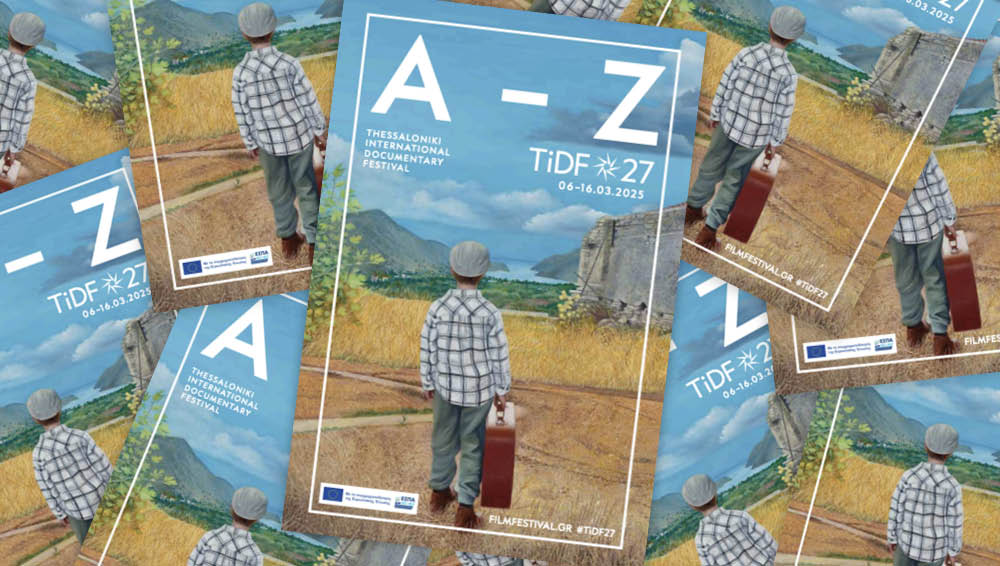19th Thessaloniki Documentary Festival
3-12 March 2017
MARKET TALKS 9/3
A PRACTICAL GUIDE FOR DOCUMENTARY FILMMAKERS
3-12 March 2017
MARKET TALKS 9/3
A PRACTICAL GUIDE FOR DOCUMENTARY FILMMAKERS
The “Market Talks” section of the Doc Market of the 19th Thessaloniki Documentary Festival kicked off on Thursday, March 9th 2017 at the “Room with a view” Cafe of the Olympion Complex, as part of this year’s edition. This is a successful discussions event in which distinguished professionals in the field of cinema offer useful info and practical tips to Greek and foreign documentary filmmakers who attend this year’s edition.
Thanassis Troboukis, editor in chief and head of content of VICE Greece, was the speaker of the event. He pointed out that VICE was initially launched in 1994 in Canada as a magazine and gradually moved on to the production of material for the print edition and then for the Internet, but also to video production as well. VICE now appears in 30 countries all over the world. In Greece, it was launched in 2014 in cooperation with the ANT1 Group, first as a website, and later on, when the video production began, the collaboration with ANT1 was expanded with two TV shows.
Content production
“Due to the financial problems in Greece, what we tried to do was to find a way so that the content we produced could be watched by as many people as possible, through different media and on various screens. Therefore, we produce 45-minute documentaries for TV screening, which we want, however, to be also screened in cinemas, laptops, TVs, mobile phones. That was the main strategy when we launched VICE Greece. We produce 45-minute documentaries, short videos for both the Internet and social media, providing a wide range of content and this way we have become a successful medium in Greece”.
Thematic content
“The stories we choose to showcase are the stories we find interesting. Our team consists of young people between 20 and 28 years of age. We want to cover whatever we find interesting, and our thematic range is broad: from political and economic issues, issues that concern the LGBT community, the illegal rave parties in Israel, the war in Ukraine, but also stories of gay immigrants, such as for example the one in the film To Another Life by Laurent Laughlin, that is screened in the 19th TDF.
Content in various platforms
“The media landscape in 2014-Greece was dark, with many TV channels being shut down or having budget cuts due to lack of resources. We used the television funding to create stories for the cinema and our webpage as well. For example, the documentary To Another Life will be broadcasted on television, while a shorter version will be featured on our webpage and an even shorter one in the social media. In other words, we try to have a connection between platforms, so as to take advantage of the budget as much as possible.
Public response
“When VICE started off, there were no other shows similar to ours and people needed to see some different stories, other than the crisis, or anything having to do with Tsipras, Juncker and the political situation in general. And, the positive public response was evident in our ratings, which approaches 15 - 25 %, while we have millions of views on our website. The videos are produced in Greece but have a global audience. We’ve received more than 12 awards”.
Are there any topics that have been rejected for being provocative?
“No, for example, we made a documentary on Paola Revenioti who is an emblematic transgender woman in Greece, and this documentary was broadcasted on the TV channel of ANT1, via VICE Greece. Therefore, we can say that we are free to produce whatever we want, we have ultimate freedom. If there is production value and the story is good, there is no topic to be excluded from TV broadcasting or our webpage”.
Why do you use the hosts format?
“Hosts help us explain the story we want to tell and see it through their eyes. If we compare Greek VICE to the rest, we have fewer productions with hosts in Greece, despite the fact that there is an editorial team globally and we are in contact with other countries. It depends on the story. If it is a difficult topic, the host helps us maintain the audience’s attention”.
How do you handle the budget?
“We try to find clever ways of using it effectively. We combine productions for various different platforms, so that our content becomes more cost-effective. Most of the times we can’t keep to the budget and we try to reduce it, but in general, as far as funding is concerned, we get significant help from the TV show”.















